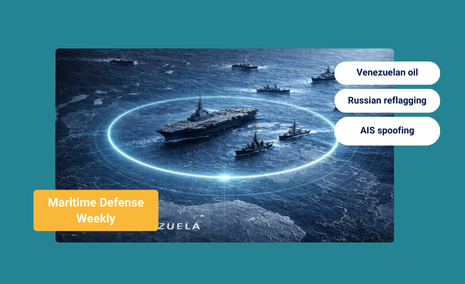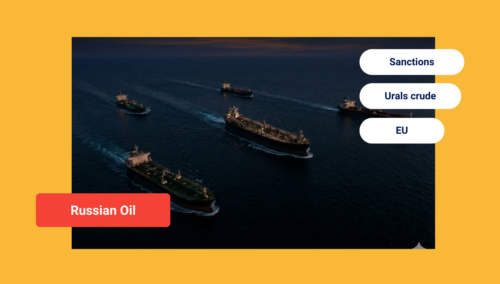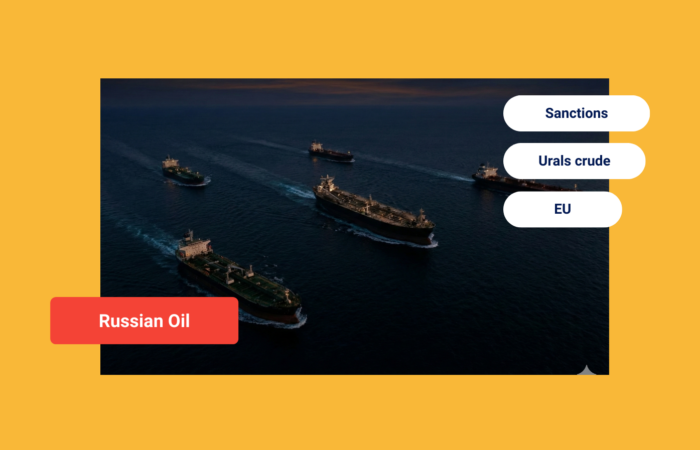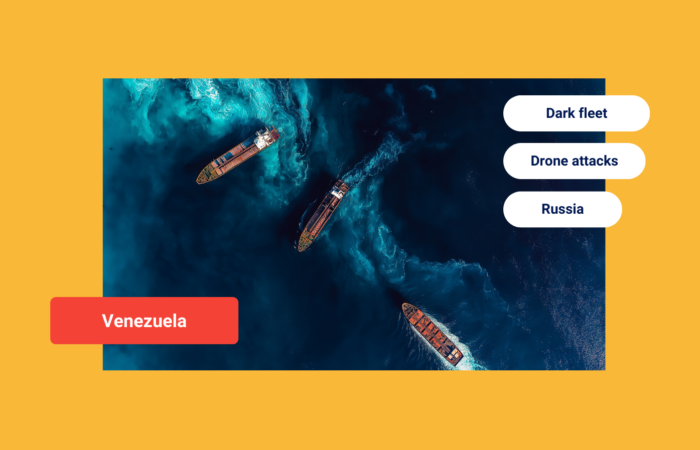EU’s 16th Sanctions Package: What Traders & Shippers Need to Know (And Do)

What’s inside?
The European Union’s (EU’s) latest sanctions against Russia are on the horizon, with its 16th sanctions package agreed upon by EU envoys this week (February 19, 2025). While the full list of sanctioned entities and individuals will apparently only be published next week, the package signals further tightening of restrictions – particularly on the maritime sector.
What’s in the 16th Sanctions Package?
Key elements of the sanctions have been confirmed:
- 73 shadow fleet vessels added to the sanctions list – the EU continues its crackdown on the fleet of tankers and bulk carriers transporting Russian oil and commodities, while evading sanctions.
- Ban on Russian primary aluminum imports – this move is expected to impact Russian aluminum companies and disrupt supply chains reliant on Russian metals.
- Further restrictions on sanctioned entities and individuals – additional companies and individuals involved in sanction evasion and illicit trade are likely to be targeted.
Geopolitical Backdrop – Putin-Trump Peace Talks & More Tariffs
These sanctions come at a pivotal moment in global politics. A recent discussion between Russian President Vladimir Putin and former U.S. President Donald Trump, plus a meeting about peace talks in Saudi Arabia, have sparked discussions about a potential resolution to the conflict in Ukraine. If diplomatic negotiations lead to a peace agreement, the necessity for continued regulatory actions such as these sanctions will diminish.
But until concrete agreements are reached and enforced, the maritime industry must operate under the assumption that regulatory oversight of Russia will remain a key factor in global trade. And Europe could choose to keep enforcing sanctions if it doesn’t approve of a Trump-brokered deal.
This has not been the only sudden disruption facing the maritime and supply chain ecosystem as of late. President Trump continues to threaten new sanctions. His latest announcement was a threat to place a tariff of around 25% on cars imported into the U.S. This has the potential to significantly change trade flows and port congestion.
“Last year, the United States imported $217 billion worth of passenger vehicles, according to Commerce Department data. Over a fifth of those cars came from Mexico, the top source of auto imports last year. Behind Mexico were Japan, South Korea, Canada and Germany, which exported a total of $131 billion worth of passenger cars to the US last year, according to CNN.
Shining a Light on the Shadow Fleet
The shadow fleet, often operating with opaque ownership structures and deceptive shipping practices, has played a crucial role in maintaining Russian oil exports despite previous sanctions. The EU’s growing focus on this fleet underscores the increasing risks associated with sanction evasion tactics. By identifying and blacklisting 73 additional vessels, this package amplifies enforcement efforts to curb illicit maritime activity.
With regulatory authorities intensifying their scrutiny, businesses engaged in global shipping and trade must exercise heightened vigilance. This latest move reinforces the need for advanced vessel tracking, behavioral analysis, and predictive risk assessment to stay ahead of compliance risks and avoid unintended involvement in sanction breaches.
What This Means for Maritime
For commodity traders, shipowners, and freight operators, these new measures introduce yet another layer of complexity. Increased regulatory scrutiny means that even indirect exposure to sanctioned entities can lead to financial and reputational risk. As has been the case recently, things have once again changed suddenly and organizations must remain agile. Proactivity is necessary to ensure compliance and avoid disruptions.
How to Stay Prepared
- Screen vessels and counterparties in real-time – with 73 additional vessels now on the radar, it’s critical to have AI-powered, advanced screening mechanisms in place to identify high-risk ships before engaging in transactions.
- Strengthen compliance workflows – automating due diligence processes and leveraging AI-driven insights can reduce the risk of unintentional violations.
- Stay ahead of regulatory changes – sanctions evolve rapidly. Automatic policy updates are essential for staying compliant and avoiding last-minute operational disruptions.
- Monitor supply chain exposure – with Russian aluminum imports restricted, traders and manufacturers must reassess sourcing strategies to avoid supply bottlenecks.
Stay Tuned…
Enforcement continues to tighten – at least for now. Let’s see what happens with the peace talks. In the meantime, the ability to adapt quickly is key. Windward’s Maritime AI™ solutions empower businesses to navigate complex regulatory environments with confidence, providing real-time risk assessments and compliance insights that keep operations moving smoothly.
The full impact of the 16th sanctions package will become clearer once the official list is published, so stay tuned. But one thing is certain – compliance is no longer optional. It’s a strategic necessity.
See AI-Powered Compliance For Yourself
Trending
- The EU’s 18th Sanctions Package Lookback Started. Trading Russian Products? You're At Risk. Nov 24, 2025
- Tanker Freight Rates Hit Five-Year High Amid Russian Oil Sanctions Shake-Out Nov 6, 2025
- Sanctioned, Stateless, and Still Sailing: Expert Insights from the Frontlines of Maritime Sanctions Nov 3, 2025











